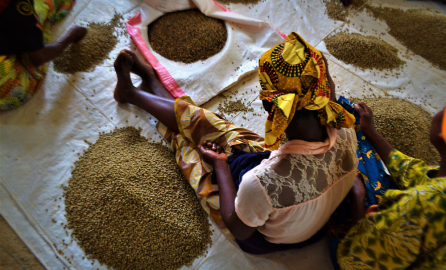Rwanda has broken the mould and shown that a partner country can take the lead in assessing the quality of its governance, producing a Joint Governance Assessment Report in September 2008. In the process, the Rwandan government consulted with multiple donors, attracted qualified consultants, designed a methodology, ignored or integrated existing global and domestically produced assessments and indicators and cooperated and discussed with multiple state and non-state actors.
The Rwandan Government is strongly committed to improve domestic governance, and takes pride in setting its own development agenda. A factor that probably contributed to the government's decision to surge ahead and take the lead in assessing governance bolstered by the report from the African Peer Review Mechanism (APRM) and some donor-driven assessments already carried out.
In their report, the Rwandan government said they wanted to assess key governance challenges so as to "establish a common understanding of governance progress, problems and priorities". The introduction of the report clarifies that government also set out to develop a framework "for assessing progress over the coming years on the basis of agreed indicators and benchmarks".
Donors insist on such monitoring, and usually drive the process. But, as explained by the government's coordinator in this process, David Musemakweli, in Rwanda serious efforts went into carrying out a joint exercise. Mr Musemakweli chaired the Joint Technical Committee that provided the inputs to the highest governing body which was co-chaired by the Rwandan Ministry of Local Governance and the World Bank.
Numerous contentious questions had to be resolved jointly, Mr Musemakweli recalls. Organising the Joint Governance Assessment was a demanding undertaking and numerous contentious questions had to be answered: How to manage the various expectations from multiple actors with differing ideas about priorities to be tackled? What type of end product combines attention to key governance concerns of the major Rwandan stakeholders and concerns of development partners, such as requirements for their governance reporting? How to build the trust and incentives to ensure participation from a range of government departments? How to engage with the private sector and civil society?
There were logistical difficulties, too. An unwieldy set of indicators had to be reduced from 400 to 45. The Rwandan government hired external consultants from a London-based company, Policy Practice, which worked together with local consultants to facilitate this complex exercise (see text box, below).
The result of this joint exercise between donors and partner country is the well argued Joint Governance Assessment report. It clearly sets out the joint objectives, which include to (i) become the assessment mechanism that all partners use, (ii) that government and development partners will jointly review existing governance programmes to ensure alignment with the recommendations of the JGA, and (iii) that both will also ensure new programmes are designed to fill areas where there are still gaps.
For practitioners who struggle with the design of assessment processes or the confection of indicators, this report offers sensible, real life examples. The report stressed the importance of getting the right mix of technical, political and dialogue skills. In addition, it provides welcome insights into how cooperating partners managed to balance and apply the five guiding principles laid out by the OECD DAC in the historical and socio-political context of Rwanda.
|
Lessons Learned: Carrying out a Joint Governance Assessment The Rwanda joint assessment process and report offer neither blueprint nor model. And that is fully recognised by the consultants of Policy Practice, whom the Rwandan government called in for assistance. In a brief summary of its experiences ‘Carrying out a Joint Governance Assessment. 'Lessons from Rwanda' , Policy Practice helps to define what is key in the preparation and implementation phases of any joint assessment process. The brief recognises that there is only a narrow experience base, but still it is safe to point out that partners had better be realistic in their expectations, and clear in their purpose. Useful tips include references on how to provide solid oversight arrangements so as to have credible outcomes, a preparedness to disagree, the role of consultants and relevance of broad consultation. The report also highlights the importance of good political economy analysis to help provide focus to what matters for realising development and human rights goals. Policy Practice concludes that "there will always be a need for independent analysis of governance from a plurality of sources". Turning governance assessments into joint operations between donors and partner countries is not an objective in itself: "Donors should be willing to support other research and assessment processes, notably those undertaken by local institutions and individuals". |





Log in with your EU Login account to post or comment on the platform.